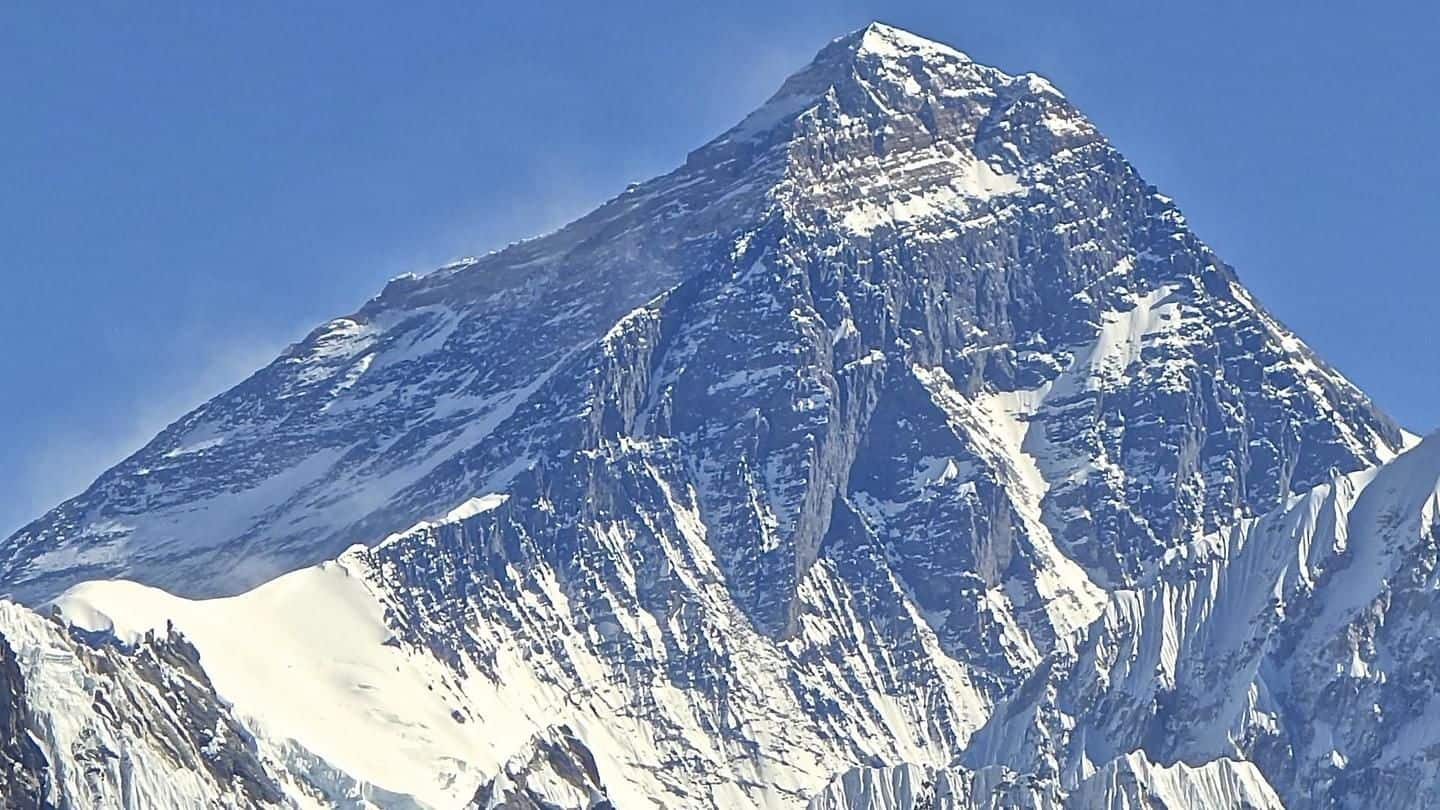
Commercial mountaineering turns Mount Everest into world's highest rubbish dump
What's the story
Decades of commercial mountaineering has turned Mount Everest into the world's highest rubbish dump. Fluorescent tents, discarded climbing equipment, empty gas canisters, and even human excrement litter the well-trodden route to the summit of the 8,848m peak, said Pemba Dorje Sherpa, who summited Everest 18 times. "It's disgusting, an eyesore," he said, adding the problem has worsened as the number of climbers soared.
Steps taken
Measures taken to curb the problem
However, efforts have been made in this regard. Five years ago, Nepal implemented a $4,000 rubbish deposit per team that would be refunded if each climber brought down at least 8kg of waste. On Tibet side, they would be fined $100/kg if failed to bring waste. In 2017, climbers in Nepal brought down nearly 25 tons of trash and 15 tons of human waste.
Less monitoring
Not enough monitoring to ensure mountain stays clean, says Pemba
Sagarmatha Pollution Control Committee (SPCC) said many climbers opt to forfeit the deposit, a drop in the ocean compared to the $20,000-100,000 they will have forked out for the experience. Pemba said some officials accept small bribes to turn a blind eye. "There is just not enough monitoring at the high camps to ensure the mountain stays clean," he said.
Sherpas' role?
Now, sherpas carry climber's personal kit, other heavy items
Sherpas (high altitude guides) carry heavier items including tents, extra oxygen cylinders, and ropes up the mountain. Previously most climbers would take their own personal kit. But now, Sherpas carry everything. "They have to carry the client's gear so they are unable to carry down rubbish," Damian Benegas, who has been climbing Everest for over two decades with twin brother Willie, said.
Impact
Everest's pollution is affecting water resources in the valley: Environmentalists
Environmentalists are concerned that Everest's pollution is also affecting water sources down in the valley. Currently, raw sewage from base camp is carried to the next village and dumped into trenches. This then "gets flushed downhill during the monsoon into the river", said Garry Porter, a US engineer, adding they are considering installing a biogas plant that would turn poo into a useful fertilizer.
Another measure
A team dedicated to collect rubbish would be deployed: Sherpa
Another solution, believes Ang Tsering Sherpa, former president of Nepal Mountaineering Association, would be a dedicated rubbish collection team. His expedition operator Asian Trekking, which has been running "Eco Everest Expeditions" for the last decade, has brought down over 18 tons of trash. And last month a 30-strong cleanup team retrieved 8.5 tons of waste from the northern slopes.